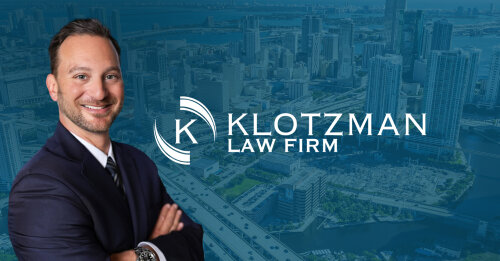Best Toxic Mold Lawyers in New York City
Share your needs with us, get contacted by law firms.
Free. Takes 2 min.
List of the best lawyers in New York City, United States
1. About Toxic Mold Law in New York City, United States
Toxic mold in New York City homes and buildings is primarily regulated through housing, building, and public health laws rather than a single dedicated mold statute. The legal framework focuses on keeping buildings safe, habitable, and free from moisture and mold hazards that affect health. Tenants and owners rely on the Housing Maintenance Code, the Building Code, and public health regulations to address mold problems.
In practice, mold cases often involve claims for habitability, repairs, and safety, as well as premises liability and insurance issues. Landlords must remediate leaks and moisture problems promptly to prevent mold growth. When mold causes illness or property damage, tenants and homeowners may seek remedies including repairs, rent abatements, and damages through administrative processes and the courts.
"Mold exposure can cause allergic reactions, asthma episodes, and other respiratory symptoms in susceptible individuals."
New York City Department of Health and Mental Hygiene
New York City residents should understand that mold regulation spans several agencies. The Department of Housing Preservation and Development (HPD) enforces housing standards in rental properties, while the Department of Buildings and the Department of Health monitor safety and environmental health concerns. For authoritative guidance, consult city and state resources on mold and moisture in buildings.
For accessible, official guidance, see the New York City Department of Health and Mental Hygiene and the New York State Department of Health mold resources. These sources provide health considerations, reporting options, and steps to pursue remediation or protections under housing law.
New York City Department of Health and Mental Hygiene and New York State Department of Health provide practical information on mold health risks and home remediation. These government resources help residents understand when to seek medical care and how to document mold issues for legal action.
2. Why You May Need a Lawyer
You may need a solicitor or attorney in several concrete situations involving toxic mold in New York City properties. Here are real-world scenarios that commonly lead to legal representation.
- A tenant discovers persistent mold in the kitchen and bathroom after a repeated leak, and the landlord refuses to remediate promptly. A lawyer can help pursue repairs, health precautions, and potential rent abatement.
- A condo owner finds extensive mold after a burst pipe and the condo board delays remediation. An attorney can evaluate liability against a contractor, builder, or management company and assist with board remedies.
- A household member develops asthma symptoms linked to mold exposure, prompting medical treatment and a demand for compensation for medical expenses and loss of use of the unit. A lawyer can discuss premises liability and damages.
- The landlord cites tenant-caused moisture as the cause of mold to avoid remediation costs. A legal professional can gather evidence, challenge the claim, and protect tenant rights under the Housing Maintenance Code.
- A building with multiple units experiences mold in common areas and the landlord fails to file required notices or inspections. An attorney can help file formal complaints with HPD or DOHMH and pursue enforcement actions.
Working with a lawyer can also clarify whether to pursue administrative remedies, civil actions, or both. In NYC, a lawyer can coordinate health and insurance considerations with your legal strategy. A qualified attorney helps ensure your case aligns with local housing regulations and remedies available in court.
3. Local Laws Overview
New York City uses a combination of local and state rules to regulate mold and moisture in residential properties. The core authorities involve housing standards, building safety, and public health considerations. Below are the primary legal frameworks and where to find them.
- Housing Maintenance Code (Administrative Code of the City of New York) - This code governs repair duties, moisture control, ventilation, and habitable housing standards in rental properties. It forms the backbone of mold remediation obligations for landlords. See official city resources for current text and guidance: HPD - Housing Maintenance Code.
- Building Code of the City of New York (Administrative Code Title 28) - The Building Code addresses structural safety, moisture intrusion, and related building health concerns that can contribute to mold growth. Official information is available through NYC Buildings and related pages: NYC Buildings.
- New York State Public Health Law and related regulations - State health regulations provide overarching public health protections, including guidance on mold in indoor environments and tenant health considerations. See the New York State Department of Health mold resources: NYSDOH Mold in the Home.
Official guidance confirms mold is addressed through housing, building, and health regimes rather than a stand-alone mold statute. For current text, amendments, and enforcement practices, consult the cited government sources. These resources help tenants and owners understand obligations and available remedies.
Housing Maintenance Code - overview and obligations for landlords and tenants.
NYC Building Code - structural and moisture related requirements affecting mold risk.
NYSDOH Mold in the Home - state health guidance on mold health risks and remediation considerations.
4. Frequently Asked Questions
What is mold and why is it a concern in NYC housing?
Mold is a fungus that grows in damp environments and can cause health issues for some people. In NYC housing, mold concerns trigger landlord duties to repair leaks and control moisture under the Housing Maintenance Code.
How do I know if mold in my apartment is dangerous or toxic?
Dangerous mold can produce visible growth and musty odors, but some health effects depend on individual sensitivities. Medical evaluation can help determine if symptoms relate to mold exposure.
Do I need a lawyer for mold issues, or can I handle this myself?
If the landlord delays remediation, disputes liability, or seeks to charge you for repairs, a lawyer can protect your rights and pursue appropriate remedies. Complex cases often benefit from counsel.
What is the typical process for reporting mold to city agencies in NYC?
tenants can file complaints with HPD or DOHMH. City inspectors may verify violations and order remediation. A lawyer can help escalate or formalize the process when there is non-compliance.
How long does mold remediation typically take after enforcement actions?
Remediation timelines vary by severity and building size. Minor repairs may occur within weeks, while major remediation could take several months with follow-up inspections.
Do I qualify for rent abatement due to mold problems?
Rent abatement depends on the severity of health risks and the landlord's failure to provide a habitable dwelling. A NYC lawyer can assess eligibility based on your lease and local codes.
How much does a toxic mold lawyer typically cost in NYC?
Many NYC mold lawyers offer contingency or hourly arrangements. Costs depend on case complexity, potential damages, and whether you pursue administrative or civil remedies.
Can I sue my landlord for mold damages and medical bills?
Yes, you may pursue premises liability and related damages if mold caused harm and the landlord was negligent or non-compliant with housing standards. A lawyer can tailor the claim to your situation.
Should I collect medical records and remediation documentation?
Yes. Medical records, doctor notes, inspection reports, and repair timelines help substantiate health impacts and remediation duties in a claim.
Is there a mold disclosure requirement for NYC tenants?
New York law generally requires landlords to maintain habitable premises and disclose material defects as part of certain transactions or disclosures. A lawyer can explain how this applies to your lease or sale.
What is the difference between tenant claims and HOA or condo board claims?
Tenants pursue landlord obligations for rental units, while condo or HOA claims involve board actions and maintenance responsibilities for common areas and shared structures.
Can I pursue both damages and rent reduction at the same time?
Yes, many cases combine monetary damages with rent abatements or credits. A lawyer can balance remedies and fiscal impact in negotiations or litigation.
What documents should I prepare before talking to a lawyer?
Gather lease or purchase documents, photos and videos of mold, repair notices, inspection reports, medical records, and any written communications with the landlord.
5. Additional Resources
- New York City Department of Health and Mental Hygiene (DOHMH) - Provides health guidance about mold and dampness, and how to protect indoor air quality. Link: DOHMH Mold Resources
- New York State Department of Health (NYSDOH) - Publishes mold in the home information and health-related guidelines for residents. Link: Mold in the Home (NYSDOH)
- New York City Department of Housing Preservation and Development (HPD) - Enforces housing standards and provides tenant rights information, including mold remediation expectations. Link: HPD Housing Maintenance Code
6. Next Steps
- Document mold and moisture issues immediately with dated photos, videos, and a log of symptoms and affected areas.
- Obtain medical evaluation for any health concerns and request a written link between symptoms and mold exposure if advised by a physician.
- Prepare a written remediation request to your landlord or building management outlining the problem and desired actions with reasonable deadlines.
- File formal complaints with HPD and DOHMH if the landlord does not respond or fails to remedy promptly. Keep copies of all correspondence.
- Consult a NYC lawyer specializing in housing, premises liability, or condo and HOA law to assess liability, damages, and potential remedies.
- Review your lease or ownership documents for disclosure obligations, repair duties, and potential insurance coverage for remediation costs.
- Schedule an initial consultation within 2-4 weeks of collecting documentation to discuss case strategy, costs, and expected timelines.
Lawzana helps you find the best lawyers and law firms in New York City through a curated and pre-screened list of qualified legal professionals. Our platform offers rankings and detailed profiles of attorneys and law firms, allowing you to compare based on practice areas, including Toxic Mold, experience, and client feedback.
Each profile includes a description of the firm's areas of practice, client reviews, team members and partners, year of establishment, spoken languages, office locations, contact information, social media presence, and any published articles or resources. Most firms on our platform speak English and are experienced in both local and international legal matters.
Get a quote from top-rated law firms in New York City, United States — quickly, securely, and without unnecessary hassle.
Disclaimer:
The information provided on this page is for general informational purposes only and does not constitute legal advice. While we strive to ensure the accuracy and relevance of the content, legal information may change over time, and interpretations of the law can vary. You should always consult with a qualified legal professional for advice specific to your situation.
We disclaim all liability for actions taken or not taken based on the content of this page. If you believe any information is incorrect or outdated, please contact us, and we will review and update it where appropriate.
















